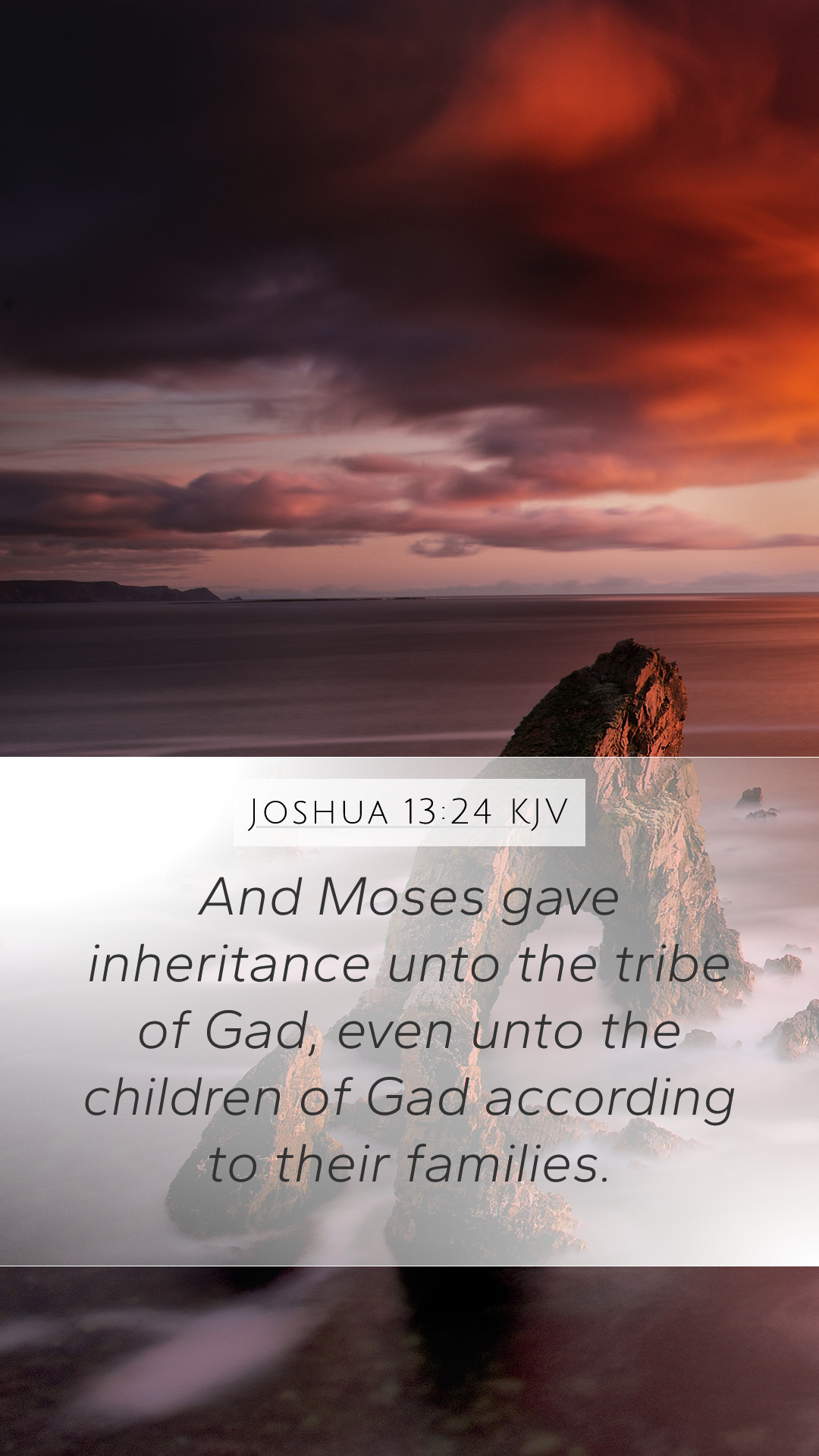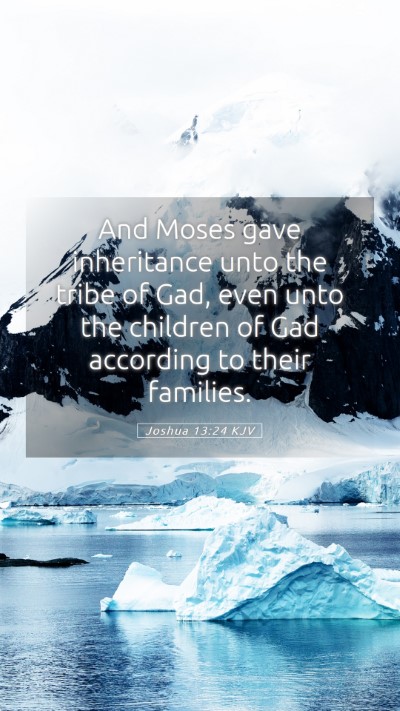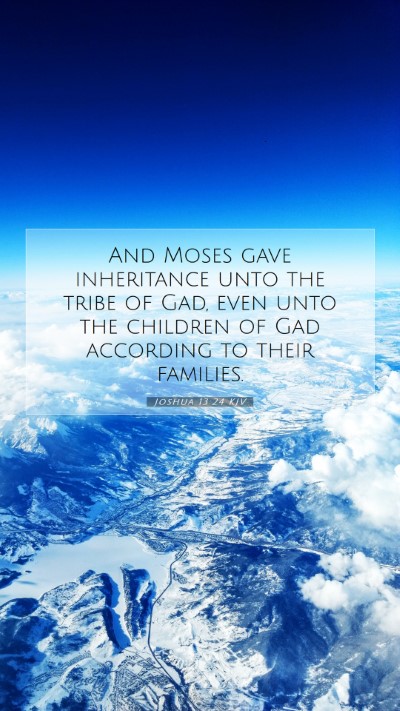Understanding Joshua 13:24
Joshua 13:24 states: "And Moses had given inheritance unto the half tribe of Manasseh; and this was the possession of the half tribe of the children of Manasseh by their families." This verse is part of the broader context in which the land of Canaan is being divided among the tribes of Israel.
Summary of Bible Verse Meaning
This verse illustrates the allocation of land among the tribes of Israel, specifically addressing the half tribe of Manasseh. In this context, it reflects the fulfillment of God's promise to give the Israelites their own land. The decisions made by Moses and the delegation of territories are significant as they denote not just the physical division of land but also the spiritual inheritance that comes from God's covenant with His people.
Insights from Public Domain Commentaries
Matthew Henry's Commentary
Matthew Henry highlights that the land assignments reflect God's order and sovereignty in the distribution of blessings among His people. He emphasizes that the careful delineation of Manasseh's portion is critical as it underscores the importance of each tribe's inheritance in the greater narrative of Israel's history.
Albert Barnes' Notes
Albert Barnes points out that the mention of Moses giving this inheritance before the conquest of the land signifies faith in God's promises. The half tribe of Manasseh's inheritance denotes their strategic importance and the faithfulness of God in providing for each tribe, suggesting that God’s plans are meticulously conceived and executed.
Adam Clarke's Commentary
Adam Clarke elaborates on the practical implications of this verse, discussing the historical and cultural context of the Manasseh tribe. He notes that their inheritance serves as a reminder of the historical dimensions of the Israelites' journey and God's providence through various phases of their existence, reinforcing both individual and collective responsibility among the tribes.
Key Themes and Concepts
- Divine Inheritance: The notion of land inheritance as a significant aspect of God's promise to His people.
- Historical Context: Understanding how the allocation relates to the larger story of Israel’s journey and the fulfillment of prophecy.
- God’s Sovereignty: The orderly distribution indicates God’s authority in assigning roles and resources to His chosen people.
- Faith and Fulfillment: Recognition of the faith that Moses exhibited in distributing the land even before possessing it signifies trust in God’s promises.
Cross References
- Numbers 32:33: Moses speaks about the allotment of the land to the tribes.
- Deuteronomy 3:13: Discussion on the land given to the half tribe of Manasseh.
- Joshua 14:3-4: Further elaboration on the inheritance given to the tribes of Israel.
Application in Bible Study
This verse offers profound lessons applicable to Bible study groups and online Bible study. It serves as a reminder of the importance of faith in God's promises and the significance of communal and individual responsibilities within a faith community.
As you engage in Bible study insights and explore Bible study lessons, consider how the principles of inheritance and communal responsibility resonate with contemporary faith practices.
Conclusion
In conclusion, Joshua 13:24 emphasizes the significance of God's promise and the orderly provision for His people. Each tripartite observation from established commentaries enriches our Bible verse understanding and critiques our own application of Scripture in daily life. Through understanding the meaning of this verse, we are called to reflect on our own inheritance in faith and what it means to live as part of God’s community.


